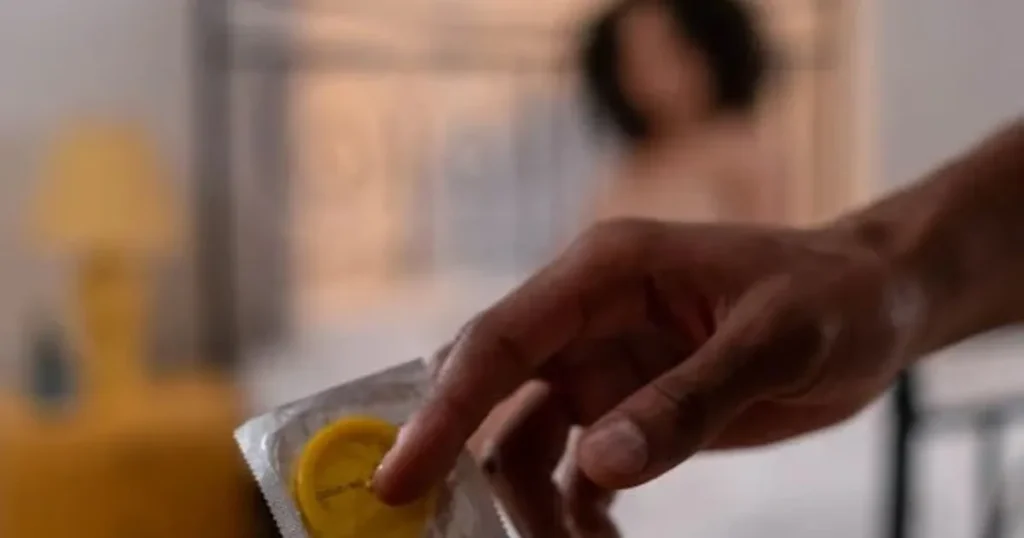
In a world where temptation is everywhere—movies, ads, social media—it’s easy to misunderstand the difference between a healthy sex drive and something deeper. Often, images of perfection, like the actresses who seduce all men with their effortless beauty and allure, shape unrealistic expectations. However, behind the scenes, not every intense desire is natural or healthy. In fact, sex addiction is a real and complex condition that affects many relationships without warning.
Understanding the signs, recognizing when behavior crosses the line, and learning how to communicate about it can help couples heal rather than hurt each other. Let’s walk through this important and sensitive topic with care and real insight.
Recognizing the Line: Healthy Desire vs. Addiction
First of all, it’s important to know that having a strong sexual desire is not, by itself, unhealthy. In healthy relationships, intimacy brings partners closer together. Nevertheless, when sexual thoughts and activities start to dominate daily life, disrupt work, damage emotional bonds, or replace emotional intimacy, it becomes a concern.
Moreover, sex addiction is often less about passion and more about compulsion. It’s the need to engage in sexual behaviors to escape, self-soothe, or cope with anxiety, much like an addiction to gambling, alcohol, or drugs.
Therefore, recognizing when desire becomes dependency is the first step toward understanding whether there’s a real problem or simply a mismatch in sexual needs between partners.
Key Signs That Suggest a Possible Sex Addiction
Several behaviors consistently appear when someone is dealing with sex addiction. However, it’s important to observe patterns, not just isolated incidents. Here are some warning signs:
- Preoccupation with sex to the point that it disrupts daily routines
- Inability to stop behaviors even after trying repeatedly
- Risk-taking behaviors such as unsafe sex or anonymous encounters
- Feelings of guilt, shame, or depression after sexual activity
- Neglecting responsibilities at work, home, or with family because of sexual compulsions
- Keeping secrets about sexual activities from their spouse or loved ones
- Escalation: needing more extreme sexual activities to feel satisfied
- Using sex as an escape from emotional stress, boredom, sadness, or anger
While many people have periods of higher sexual interest, a true addiction persists and worsens over time without proper intervention.
Is Sex Addiction a Real Illness or Just an Excuse?
The answer isn’t simple. On one hand, some skeptics argue that labeling frequent sexual activity as an “addiction” pathologizes natural human desires. However, on the other hand, the American Society of Addiction Medicine and many therapists recognize that sex addiction follows the same patterns as chemical addictions.
Moreover, scientific studies show that repeated sexual behavior can activate the same reward pathways in the brain as drugs and alcohol, making the brain crave more and struggle with impulse control.
Therefore, for many, sex addiction is not an excuse—it’s a real disorder requiring real help. Ignoring it won’t make it go away. Like any mental health challenge, it needs attention, compassion, and sometimes professional intervention.
related : Take Care of Yourself Without Relying on Your Partner: Reclaiming Emotional Independence
The Impact on the Spouse: Feeling Betrayed, Confused, and Lost
When sex addiction enters a marriage, it often creates a silent earthquake. The spouse may feel betrayed even if no physical infidelity happened. In addition, secrecy, emotional distance, and broken promises can shatter trust.
It’s common for partners to ask themselves:
- “Am I not attractive enough?”
- “Why wasn’t I enough?”
- “Was everything we shared a lie?”
However, it’s crucial to understand that sex addiction is less about the partner and more about the addict’s internal struggles. Therefore, blaming yourself is neither fair nor helpful. Healing requires separating personal worth from the illness at hand.

How to Communicate With Your Spouse About Sex Addiction
Bringing up concerns about sex addiction is never easy. Nevertheless, honest communication is the bridge to understanding and healing. Here’s how to approach it:
First, choose a calm time to talk—not during an argument or emotional explosion.
Secondly, use “I” statements to express your feelings. For example:
“I feel hurt and confused when I sense distance between us, and I need to talk about it.”
Avoid accusations such as:
“You’re addicted, and you’re ruining everything.”
Instead, invite openness. Say something like:
“I want us to understand what’s happening and how we can work through it together.”
Moreover, prepare yourself for possible denial, anger, or defensiveness. Change is scary, and acknowledging addiction can trigger shame. However, stay calm and focus on your goal: opening a door to healing, not creating more blame.
Is Recovery Possible? Absolutely, With Effort and Compassion
Although sex addiction can devastate relationships, recovery is very possible. Nevertheless, it requires commitment from both partners.
Professional counseling, especially with therapists experienced in sex addiction and couples therapy, is usually essential. Moreover, group support programs like Sex Addicts Anonymous (SAA) provide community and accountability.
Meanwhile, the spouse often needs their own healing journey. Support groups like COSA (for loved ones of sex addicts) can offer much-needed space to process anger, grief, and hope.
Therefore, even though recovery is hard, many couples who face the problem directly find their relationship growing stronger, deeper, and more authentic than ever before.
Practical Steps Toward Healing as a Couple
If you or your spouse is dealing with sex addiction, taking the following steps can greatly increase your chances of healing together:
- Commit to honesty from now on. Secrets poison trust.
- Seek professional help immediately. Don’t try to fix it alone.
- Create accountability structures like therapy, check-ins, and action plans.
- Develop empathy for the hurt each of you carries without judgment.
- Celebrate progress even when it feels slow. Every step counts.
Moreover, it’s important to pace the process. Healing doesn’t happen overnight. Trust must be rebuilt brick by brick.

Why Pop Culture Makes Things More Confusing
Living in a society obsessed with sexuality makes navigating this issue even harder. Constant images of idealized beauty, like the actresses who seduce all men with their flawless appearances, feed fantasies and distort real relationships.
On social media, in movies, and in music, the message often repeats: “More is better.” However, real intimacy thrives not in endless conquest, but in mutual respect, vulnerability, and authenticity.
Therefore, couples must actively protect their emotional world from the unrealistic standards around them. By reconnecting in truth, rather than in fantasy, love becomes a place of healing rather than harm.
Hope Is Stronger Than Shame
If you’re facing sex addiction in your marriage, you’re not alone—and you’re not doomed. While the journey ahead requires honesty, bravery, and support, it’s entirely possible to rebuild trust, intimacy, and joy.
Remember, the goal is not perfection. It’s progress. And progress begins the moment you choose courage over silence.
Moreover, know that love—real, gritty, imperfect love—can survive much more than most people believe, especially when two people are willing to grow side by side.
Healing starts with one choice: to see the truth with clear eyes and to walk forward together, hand in hand.



